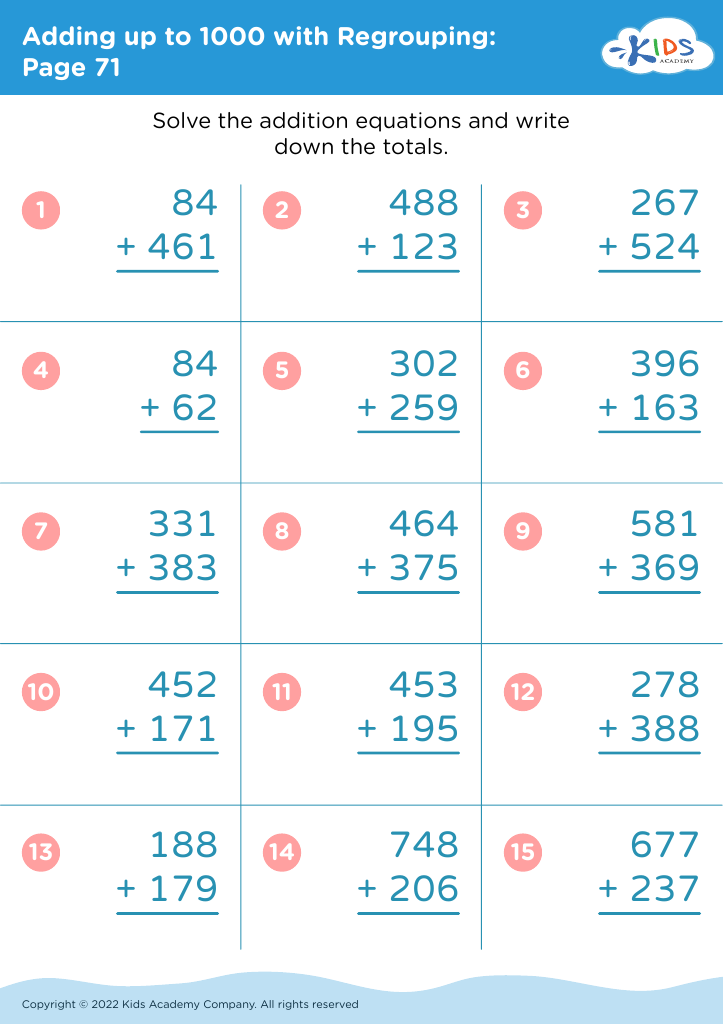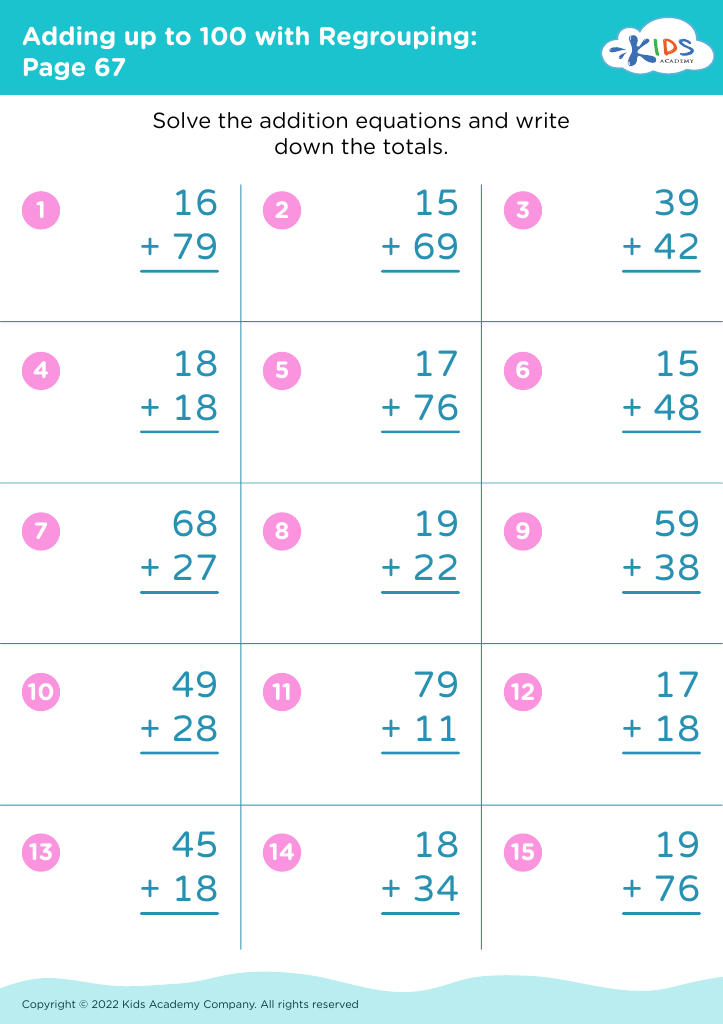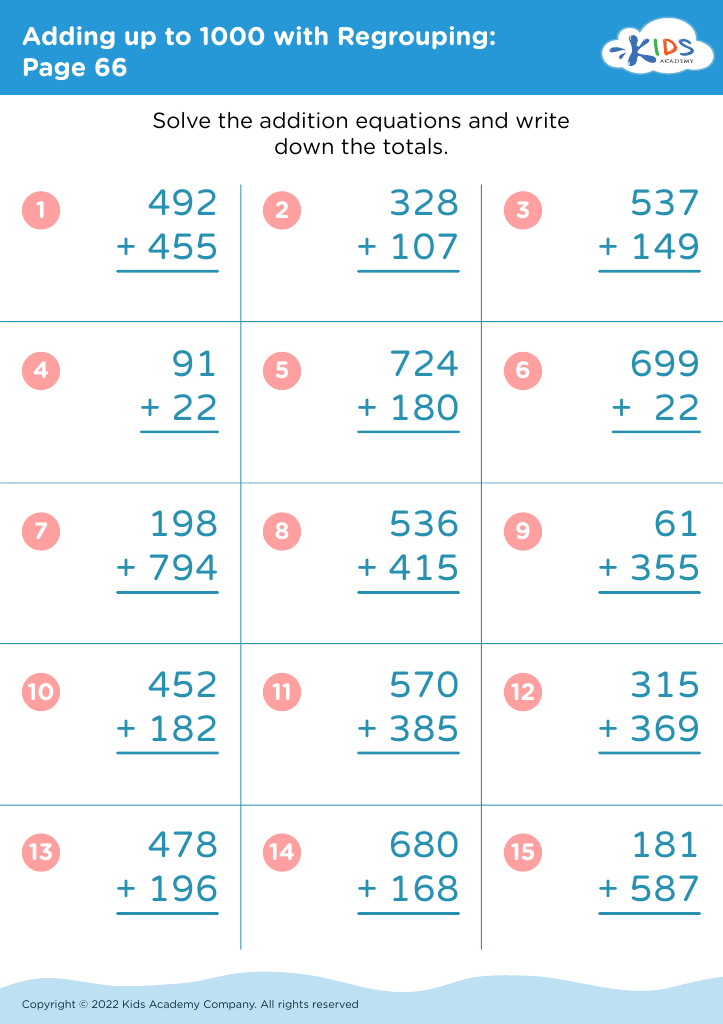Enhances number recognition Addition & Subtraction Worksheets for Ages 8-9
4 filtered results
-
From - To
Enhance your child's number recognition skills with our engaging addition and subtraction worksheets designed for children ages 8-9. Our carefully crafted activities help reinforce mathematical fundamentals through fun exercises that encourage both learning and enjoyment. Each worksheet focuses on improving numerical understanding while making addition and subtraction concepts clearer. Perfect for at-home practice or classroom use, these worksheets provide a comprehensive approach to math education. Boost your child's confidence and proficiency in arithmetic as they learn to recognize numbers and solve problems independently. Browse our collection now and set the foundation for advanced mathematics in an enjoyable way!
Parents and teachers should be invested in enhancing number recognition, addition, and subtraction skills for children aged 8-9 for several compelling reasons. During this developmental stage, foundational mathematical skills are crucial for academic success. Proficiency in number recognition sets the stage for understanding place value and critical math operations. It also builds the confidence necessary for children to tackle more complex mathematical concepts in the future.
Mastering addition and subtraction in these early years allows students to engage in problem-solving effectively, reinforcing their logical reasoning skills. These basic operations are not only essential for performing computations but also form the basis for more advanced topics such as multiplication, division, and even fractions.
Moreover, these skills extend beyond the classroom. They have practical applications in daily life—shopping, budgeting, and managing time—empowering children with the necessary tools to navigate everyday situations. When parents and teachers emphasize these skills through engaging activities, games, and real-world scenarios, they make learning enjoyable and relevant. This can foster a positive attitude towards math as a whole, promoting lifelong learning and success in this vital subject. Thus, nurturing these skills at an early age contributes to a well-rounded educational foundation.



















